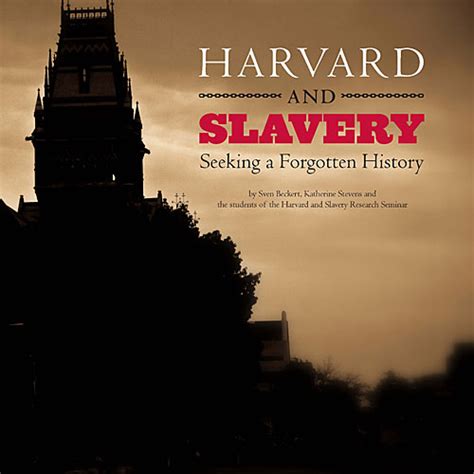
Former President Bill Clinton staunchly defended President Joe Biden’s mental acuity, asserting, “He’s doing fine!” amid persistent questions about the 81-year-old president’s fitness for office. Clinton’s remarks came during a recent interview, adding his voice to a chorus of supporters dismissing concerns raised primarily by Republican critics and amplified by some media outlets. The former president’s support arrives as Biden ramps up his reelection campaign, facing scrutiny over his age and cognitive abilities.
Bill Clinton has strongly defended President Joe Biden’s mental fitness, dismissing concerns about the 81-year-old president’s sharpness and capacity to lead. In a recent interview, Clinton countered the criticisms, stating unequivocally, “He’s doing fine!” His remarks come as Biden faces increasing scrutiny over his age and cognitive abilities as he seeks reelection in 2024. Clinton’s defense underscores the broader effort by Democratic allies to reassure voters about Biden’s capability to handle the rigors of the presidency for another term.
The remarks by Clinton are particularly notable given his own experience as a two-term president and his continued influence within the Democratic Party. He joins a growing number of Biden’s supporters who have publicly vouched for the president’s mental and physical fitness, dismissing concerns often fueled by political opponents. The debate over Biden’s age has become a recurring theme in political discourse, with critics frequently pointing to gaffes and instances of apparent confusion as evidence of cognitive decline.
“He’s doing fine,” Clinton stated, offering a direct rebuttal to the persistent narratives questioning Biden’s mental acuity. The former president’s endorsement aims to bolster confidence among voters who may be wavering due to concerns about Biden’s age.
Clinton’s defense is part of a larger strategy by the Biden campaign and its allies to address the age issue head-on. This includes highlighting Biden’s policy achievements, showcasing his experience, and emphasizing his leadership on key issues. Supporters argue that Biden’s decades of experience in public service make him uniquely qualified to navigate the complex challenges facing the nation. They also point to his legislative victories, such as the Infrastructure Investment and Jobs Act and the Inflation Reduction Act, as evidence of his effectiveness as president.
The issue of Biden’s age has been a consistent talking point, particularly among Republican contenders for the presidency. During debates and campaign rallies, Republican candidates have frequently questioned Biden’s fitness for office, citing instances of verbal stumbles and perceived lapses in memory. These attacks have been amplified by conservative media outlets, contributing to a broader narrative of decline.
In response, the Biden campaign has sought to reframe the narrative, emphasizing Biden’s wisdom and experience as assets. They argue that his long career in politics has provided him with invaluable insights and a deep understanding of the issues facing the country. They also highlight his ability to work with both Democrats and Republicans to achieve bipartisan consensus.
Recent polls indicate that concerns about Biden’s age are prevalent among voters, even among some Democrats. A significant percentage of respondents have expressed doubts about his ability to serve effectively for another four years. This has prompted the Biden campaign to intensify its efforts to reassure voters and demonstrate his fitness for office.
The debate over Biden’s age and mental acuity is not new. It has been a recurring theme throughout his career, particularly as he has grown older. However, the issue has gained greater prominence as he seeks reelection, with the stakes higher than ever.
Biden’s supporters often highlight his sharp wit and policy expertise as evidence of his continued fitness. They point to his ability to engage in substantive policy debates and his detailed knowledge of complex issues. They also emphasize his strong relationships with world leaders and his ability to represent the United States effectively on the global stage.
Critics, however, argue that Biden’s age makes him more susceptible to health issues and cognitive decline. They point to instances of verbal missteps and apparent confusion as evidence of this. They also raise concerns about his energy levels and ability to keep up with the demands of the presidency.
The issue of age is a sensitive one, and it is often difficult to have an objective conversation about it. However, it is clear that it is a significant factor in the upcoming election. Voters will need to weigh the potential benefits of Biden’s experience against the potential risks of his age.
Clinton’s defense of Biden’s sharpness is not the first time a prominent Democrat has stepped up to defend the president. Vice President Kamala Harris, members of the Cabinet, and numerous members of Congress have all publicly vouched for Biden’s fitness for office. These endorsements are part of a coordinated effort to counter the narrative of decline and reassure voters about Biden’s ability to lead.
The controversy surrounding Biden’s age also highlights broader societal attitudes toward aging and leadership. In many cultures, age is associated with wisdom and experience. However, in the United States, there is often a greater emphasis on youth and vitality. This can create challenges for older politicians who are seeking to maintain their relevance and appeal to voters.
The debate over Biden’s age is likely to continue in the months leading up to the election. Both sides will continue to make their case to voters, highlighting the potential benefits and risks of electing an 81-year-old president. Ultimately, it will be up to voters to decide whether they believe Biden is fit to serve another term in office.
In addition to Clinton’s defense, other prominent figures have also weighed in on the debate over Biden’s age and cognitive abilities. Former House Speaker Nancy Pelosi has repeatedly praised Biden’s leadership and dismissed concerns about his age. She has described him as a “wise and experienced leader” who is well-equipped to handle the challenges facing the nation.
Similarly, Senator Chuck Schumer, the Senate Majority Leader, has lauded Biden’s legislative accomplishments and his ability to work across the aisle. He has emphasized Biden’s strong relationships with Republican senators and his willingness to compromise in order to achieve bipartisan consensus.
These endorsements from prominent Democrats are intended to send a message to voters that Biden has the support of his party and that he is capable of leading the country effectively. They also serve to counter the narrative of decline that has been promoted by Republican critics.
The debate over Biden’s age is not just about his physical and mental abilities. It is also about the broader direction of the country. Democrats argue that Biden represents a return to stability and competence after four years of chaos under President Trump. They point to his efforts to combat climate change, expand access to healthcare, and invest in infrastructure as evidence of his commitment to improving the lives of ordinary Americans.
Republicans, on the other hand, argue that Biden is out of touch with the concerns of ordinary Americans. They criticize his policies on immigration, energy, and the economy. They also accuse him of being beholden to the radical left wing of his party.
Ultimately, the election will be decided by voters who are weighing these competing visions for the future of the country. The issue of Biden’s age is just one factor in this larger calculation. Voters will also consider his policy positions, his leadership qualities, and his overall vision for the country.
The context in which Clinton made his comments is also significant. He was speaking at a time when Biden’s approval ratings have been relatively low, and when many voters are expressing concerns about the direction of the country. Clinton’s endorsement of Biden is intended to provide a boost to his campaign and to reassure voters that he is capable of leading the country effectively.
It remains to be seen whether Clinton’s defense of Biden will have a significant impact on the election. However, it is clear that the issue of Biden’s age will continue to be a major topic of discussion in the months leading up to the election.
The Biden administration has consistently pushed back against claims of cognitive decline, highlighting the president’s active schedule, policy speeches, and interactions with world leaders as proof of his continued fitness. White House officials have accused Republican critics of engaging in ageism and spreading misinformation to undermine Biden’s presidency.
The ongoing debate over Biden’s age and fitness underscores the challenges facing older politicians in a society that often values youth and vitality. As the population ages, it is likely that this issue will become even more prominent in political discourse. Voters will need to grapple with the question of how to balance the experience and wisdom that often come with age against the potential risks of cognitive decline and physical limitations.
The issue of age and fitness for office is not unique to Biden. It has been a recurring theme in American politics, particularly in recent years as the population has aged and as medical advancements have extended lifespans. Ronald Reagan, for example, faced similar questions about his age and mental acuity during his presidency.
Ultimately, it is up to voters to decide whether they believe Biden is fit to serve another term in office. They will need to weigh the evidence and make their own judgments about his physical and mental abilities. The debate over Biden’s age is likely to continue until Election Day, and it will undoubtedly play a significant role in the outcome of the election.
The Biden campaign is actively working to counter the narrative surrounding the president’s age by showcasing his accomplishments and emphasizing his experience. They highlight his leadership on key issues such as the economy, climate change, and healthcare, and they point to his strong relationships with world leaders as evidence of his ability to represent the United States effectively on the global stage.
The campaign also emphasizes Biden’s personal story and his resilience in the face of adversity. They highlight his ability to connect with ordinary Americans and his commitment to fighting for their interests. By focusing on these positive aspects of Biden’s candidacy, the campaign hopes to reassure voters and counter the negative narrative surrounding his age.
The role of media coverage in shaping public perceptions of Biden’s age and fitness cannot be overstated. News outlets have a responsibility to report on this issue fairly and accurately, providing voters with the information they need to make informed decisions. However, there is a risk that media coverage can be biased or sensationalized, which can distort public perceptions and undermine trust in the political process.
It is important for voters to be critical consumers of media and to seek out information from a variety of sources. They should also be wary of partisan spin and misinformation, which can be used to manipulate public opinion. By being informed and engaged citizens, voters can help ensure that the debate over Biden’s age is conducted fairly and accurately.
The broader implications of the debate over Biden’s age extend beyond the upcoming election. They raise fundamental questions about the role of age in leadership and the qualities that are most important in a president. As the population ages, it is likely that these questions will become even more pressing.
It is important for society to have an open and honest conversation about age and leadership, and to develop a nuanced understanding of the challenges and opportunities that come with age. This will require breaking down stereotypes and prejudices and recognizing the value of experience and wisdom.
Ultimately, the goal should be to create a political system that is inclusive and representative of all ages, and that allows qualified individuals to serve regardless of their age. This will require a shift in attitudes and a willingness to challenge conventional wisdom.
As the election approaches, the debate over Biden’s age is likely to intensify. Both sides will continue to make their case to voters, and the media will continue to play a key role in shaping public perceptions. It is up to voters to weigh the evidence and make their own judgments about Biden’s fitness for office. The outcome of the election will have significant implications for the future of the country.
The upcoming election also presents an opportunity for voters to consider the broader issues facing the nation, such as the economy, healthcare, climate change, and social justice. These issues are complex and challenging, and they require thoughtful and informed leadership.
Voters should carefully consider the policy positions of the candidates and their visions for the future of the country. They should also consider their leadership qualities and their ability to work with others to achieve common goals.
Ultimately, the election is about choosing the best leader to guide the country through these challenging times. Voters should take their responsibility seriously and make their voices heard at the ballot box.
FAQ
-
What was Bill Clinton’s main statement regarding President Biden’s mental sharpness? Bill Clinton stated, “He’s doing fine!” defending President Biden’s mental acuity amid ongoing concerns.
-
Why are questions being raised about President Biden’s fitness for office? Questions about President Biden’s fitness for office primarily stem from his age (81), instances of verbal missteps, and concerns raised by political opponents and some media outlets regarding his cognitive abilities.
-
What is the Biden campaign’s strategy to address concerns about the President’s age? The Biden campaign is attempting to address these concerns by highlighting the President’s policy achievements, emphasizing his extensive experience, showcasing his leadership on critical issues, and reframing his age as a source of wisdom and experience.
-
Who else has publicly defended President Biden’s mental sharpness besides Bill Clinton? Vice President Kamala Harris, former House Speaker Nancy Pelosi, Senate Majority Leader Chuck Schumer, and numerous other members of Congress and the Cabinet have publicly vouched for President Biden’s fitness for office.
-
How might concerns about President Biden’s age impact the upcoming election? Concerns about President Biden’s age could influence voters’ decisions, potentially affecting his approval ratings and overall support. The Biden campaign and its allies must successfully reassure voters about his capabilities while countering negative narratives propagated by political opponents. His age is a major factor in voters’ calculation when considering his policy positions, leadership qualities, and overall vision for the country.
-
What specific examples are often cited to question Biden’s mental acuity? Critics often point to verbal stumbles, instances of apparent confusion, and perceived lapses in memory during public appearances and speeches as evidence of cognitive decline. These moments are frequently amplified in conservative media.
-
How do Biden’s supporters counter these criticisms and highlight his strengths? Supporters emphasize Biden’s sharp wit, policy expertise, detailed knowledge of complex issues, and strong relationships with world leaders. They point to his legislative victories and his ability to work with both Democrats and Republicans.
-
How do concerns about Biden’s age reflect broader societal attitudes toward aging and leadership? The debate reflects a tension between valuing experience and wisdom associated with age versus emphasizing youth and vitality. This highlights challenges older politicians face in maintaining relevance and appealing to voters in a society that often prioritizes youth.
-
What role does media coverage play in shaping public perception of Biden’s fitness? Media coverage significantly influences public perception. Fair and accurate reporting is crucial, but biased or sensationalized coverage can distort public opinion and undermine trust. Voters must be critical consumers of media.
-
What are some broader implications of the debate over Biden’s age for political leadership in general? The debate raises fundamental questions about the role of age in leadership and the qualities most important in a president. It calls for an open conversation about age, leadership, and breaking down stereotypes to value experience and wisdom, creating a more inclusive political system.
-
What are some of Biden’s key policy achievements that his supporters emphasize to counter concerns about his age? Supporters highlight the Infrastructure Investment and Jobs Act and the Inflation Reduction Act as evidence of his effective leadership and ability to deliver on key policy priorities.
-
How does the Biden campaign try to reframe the narrative around his age to an advantage? The campaign seeks to emphasize Biden’s wisdom and experience gained over a long career in politics, arguing that these assets make him uniquely qualified to navigate complex challenges. They focus on his competence and stability.
-
What do polls suggest about the prevalence of concerns regarding Biden’s age among voters? Polls indicate that concerns about Biden’s age are prevalent among voters, including some Democrats, with a significant percentage expressing doubts about his ability to effectively serve another four years.
-
How do Republicans typically frame their criticisms of Biden’s age and mental fitness during debates and rallies? Republicans frequently question Biden’s fitness for office by citing verbal stumbles and perceived memory lapses, contributing to a narrative of decline amplified by conservative media outlets.
-
What are the challenges in having an objective conversation about age and fitness for office? Age is a sensitive issue, making objective conversation difficult. Balancing the benefits of experience against potential risks of cognitive decline requires nuanced understanding and avoidance of stereotypes.
-
Besides political figures, who else has a stake in the debate over Biden’s age and fitness? The American public, especially voters, have a stake as they must weigh the potential benefits and risks of electing an older president. The media also plays a critical role in shaping informed public opinion.
-
How does the issue of age intersect with other important election issues like the economy, healthcare, and climate change? The issue of age is intertwined with voters’ broader considerations of the candidates’ policy positions, leadership qualities, and their vision for addressing key national challenges like the economy, healthcare, and climate change.
-
What are some of the potential policy implications of having an older president? Potential policy implications include decisions influenced by extensive experience, a tendency toward stability and caution, but also possible limitations in energy and adaptability to rapidly changing circumstances.
-
How might the debate over Biden’s age influence the choice of his running mate in future elections? The debate may increase pressure to choose a running mate perceived as ready to step into the presidency, emphasizing the importance of the vice-presidential pick’s qualifications and fitness for the role.
-
What is the historical context for debates about age and fitness among presidential candidates? Historical context shows that questions about age have been raised before, notably with Ronald Reagan. These debates highlight evolving societal attitudes toward aging and leadership, especially as lifespans extend.









